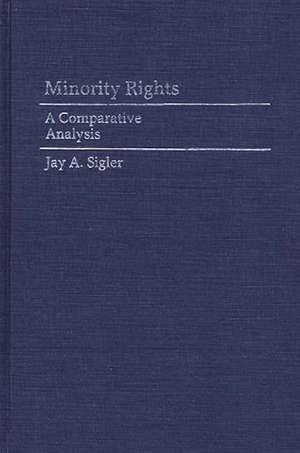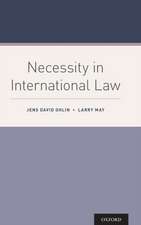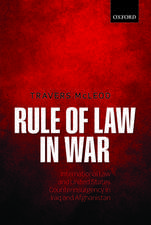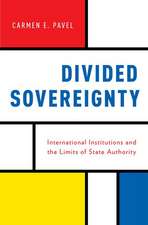Minority Rights: A Comparative Analysis: American Popular Culture,, cartea 104
Autor Jay A. Sigleren Limba Engleză Hardback – 30 noi 1983
The unprecedented mass movement of populations since World War II has increased tensions among groups of people by breaking down the homogeneity of older countries and increasing the fragility of newly independent states encompassing several minorities within their borders. These changes, according to author Jay Sigler, dictate the necessity of clarifying human and minority rights. He highlights the main points of minority rights, traces their history, and demonstrates their distinctly modern features. Sigler considers the theoretical implications of minority versus individual and collective rights and examines the efforts in this area made by the United States, India, the United Kingdom, Belgium, and the Union of Soviet Socialist Republics. Finally, he proposes his own provisional theory of minority rights.
Preț: 438.17 lei
Preț vechi: 707.97 lei
-38% Nou
83.84€ • 87.54$ • 69.39£
Carte tipărită la comandă
Livrare economică 05-19 aprilie
Specificații
ISBN-10: 0313234000
Pagini: 245
Dimensiuni: 156 x 234 x 16 mm
Greutate: 0.54 kg
Editura: Greenwood Press
Seria American Popular Culture,
























